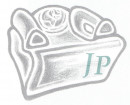I was puzzled by David Bivin’s January/February column (“Understanding the Roots of the Bible”) [in Ministries Today (Strang Communications, Lake Mary, Florida)] inasmuch as Bivin makes a case against spelling the name Y’shua with an apostrophe. The rules of transliteration are to enable correct pronunciation that approximates the sound in Hebrew. By spelling it with an apostrophe, we put the accent where it belongs, on the second syllable. Bivin seems to feel that this is an “English corruption.”
We spell Y’shua with an apostrophe and agree with Bivin on the correct pronunciation. If spelled with an “e” (Yeshua), it would be pronounced by most readers with the accent on the first syllable. We want to get an even pronunciation.
Whether the synoptic Gospels were written in Hebrew is purely a matter of speculation. We know they were transmitted in Greek, and Greek was commonly spoken. There has never been enough of a reason to believe they were originally written in Hebrew. Bivin and his colleagues use the word “apparently” for what is not so apparent to most 20th-century scholars of Hebrew and Greek.
Moishe Rosen, Director
Jews for Jesus
San Francisco, CA
The preceding Letter to the Editor appeared in the September/October 1992 issue of Ministries Today (Strang Communications, Lake Mary, Florida), in response to my January/February 1992 column in Ministries Today (p. 46).
In the January/February 1992 issue of Ministries Today, I wrote: “…the spelling “Y’shua” is an English corruption of the name. English speakers normally shorten a vowel in an unstressed syllable to the “uh” sound, for instance, the final “a” in banana or the “o” in collide. In fact, in their pronunciation, a vowel in an unstressed syllable is often so short that it is scarcely audible. Because the accent in the word יֵשׁוּעַ (yeSHUa) is on the second syllable, English speakers have a tendency to slur the first syllable. “Y’shua” is a result of someone spelling the name Yeshua as they mispronounce it.”
Several years ago, I spoke to Moishe Rosen in Jerusalem and expressed my reservations about his transliteration of the name “Yeshua.” At the time, he argued that adopting the transliteration “Y’shua” gave his organization a distinctive spelling of the name. I’m glad that Rosen now expresses interest in a transliteration that will “enable correct pronunciation that approximates the sound in Hebrew.”
The Jews for Jesus spelling of Jesus’ name probably came about due to a particular mispronunciation of Hebrew that is characteristic of English speakers. The original creator of this transliteration apparently believed that the initial vowel in Jesus’ name is a shewa, an “uh” sound, and so wrote it with an apostrophe. This slurring is similar to the way beginning Hebrew students from English-speaking countries mispronounce the Hebrew word shaLOM as sh’LOM.
Even if the spelling adopted by Jews for Jesus helps English speakers to get the accent in the right place, English speakers may still incorrectly pronounce the first syllable of Jesus’ name as “yuh.” If there is concern that people might not pronounce Jesus’ name “the Jewish way,” why not capitalize the letters of the accented syllable “SHU,” or simply use an accent mark over that syllable?































































































